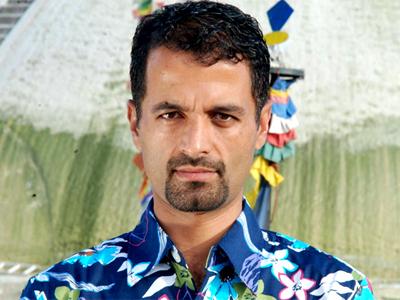
Sunil Babu Pant/Pahichan – World is inspired by the courage, stamina and resilience shown by Nepalese during and after the recent earthquake. Good to see without much resources and planning people have started getting rebuilding their lives and all around it. We know Nepal government, UN and other Aid agencies as well as private sectors are planning to rebuild earthquake affected districts of Nepal despite all the political, economic and environmental challenges.
The marginalized communities (particularly sexual/gender minorities and people with disabilities) of Nepal are equally concerned over Nepal’s development, especially after the recent earthquakes that destroyed so many buildings, so many lives. The sexual and gender minority communities, and no doubt the communities of people with disabilities) would like to participate and contribute to the rehabilitation, rebuilding and reconstruction of Nepal affected by earthquake. Nepal’s massive rehabilitation, rebuilding projects cannot be treated separately from the whole development process. In fact, it is a pre-condition for sustainable development without which, development outcomes will be exclusive, limited and compromised.
Many consider Nepal a leading country in terms of sexual/gender minority people’s rights but in no policy paper related to the socio-economic development of the country are we able to find a reference to sexual/gender minorities, let alone sexual/gender minorities’ sensitivity.
A major barrier in Nepal identified is the lack of statistics on sexual/gender minorities people. The Central Bureau of Statistic, even though including third gender in its head count form during the 2011 census nonetheless refused to count them in the field and did not include into the final report even some who were counted.
In post disaster situations too, when rapid damage assessments are being performed to asses needs of affected communities, hardly any agencies included necessary tools to collect sexual/gender minority’ related information. No surprise that only one third-gender is listed among the ‘dead’ in home ministry’s list of casualties. Two third genders reported that the government team refused to register the damaged houses of third genders as “damaged” and said ‘only cracks, still standing, not fallen down completely’. The relief, rehabilitation and rebuilding operations are and will be based on the findings and recommendations of these rapid damage assessments and with the vacuum of sexual/gender minorities’ related data, sexual/gender minorities communities are likely to be excluded further during the implementation phase.
In the rehabilitation and reconstruction phases, a major role can be played by the local organizations like Blue Diamond Society (BDS) that have expertise on sexual/gender minorities sensitive development. Some international agencies also have expertise on sexual and gender minorities issues. Unfortunately, the Nepal government has very little experience on integrating sexual/gender minorities’ into development while many other donors also lack the knowledge and skills to identify development needs of sexual/gender minorities. This issue is further aggravated by the diversity that exists among sexual/gender minorities people themselves. For example, a third gender identified person may have issues relating to their ID card, accessing toilet, applying for job, for ‘a living together homosexual female couple’, they may face issue around recognition as a family during government rehabilitation projects, they may also face security issues and acceptance by the “new” community.
How can the government ensure safety and integration to the community in general to an openly homosexual man? Or even the challenges that may be faced by the families who have their sexual/gender minority children living with them together, during this rehabilitation programs? Thus, it is important for the government (especially the local governments) and the donors, to work with local sexual/gender minorities and with their families from the planning phase so that the relief, rehabilitation and rebuilding projects become inclusive. Inclusion must not mean treating sexual/gender minorities’ people as mere victims and recipients of external assistance. Their skills, knowledge and expertise should be utilized, which includes assuring that the needs of the sexual and gender minority community are understood, cataloged and meaningfully addressed. Organizations like BDS can serve as an important liaison to fulfill this aspect of the government’s mandate to serve ALL the people of Nepal.
It’s inevitable that Nepal needs massive reconstruction of roads, schools, hospitals, playgrounds, community centers, hat-bazaar, public toilets, etc. I like to call Nepal government’s and donor’s attention to be mindful while planning this reconstruction, to make sure all these projects are disability friendly, third gender friendly. Make sure the roads have wheel chair accessible pedestrian lanes and zebra-crossings; the public buildings, hospitals, schools are wheel chair accessible and lifts if they are multi-storied ones, similarly the toilets are gender-neutral or additional toilet room for third gender population in all newly constructed/repaired buildings and public toilets.
Similarly, while planning and implementing post-earth-quake rehabilitation and livelihood enhancement projects make sure these marginalized communities are well integrated and the community is consulted and heard.
Sunil Babu Pant : Former Member of parliament of Nepal (2008-12)
Copyright © All right reserved to pahichan.com Site By: Sobij.